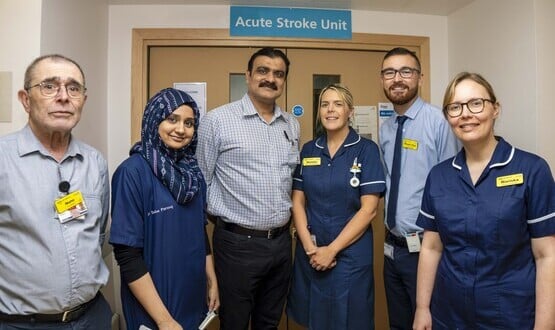New A&E system for Nottingham
- 13 December 2004
Queen’s Medical Centre, part of University Hospital, Nottingham NHS Trust, has procured and implemented a new A&E system to track patients through the busy casualty department marking an important step towards the hospital’s goal of becoming paperless.
The A&E system was supplied by Australian firm HASS, an iSOFT company, and is a system already in use in other NHS hospitals including Birmingham Heartlands Hospital NHS Trust.
The new A&E system will assist with patient flow through the department, identifying where the patient is, what they need and what they are waiting for. According to the NPfIT, the system has been developed and implemented in six months, 12 months sooner than would have otherwise been possible.
Dr Andrew Dove, consultant and senior user at Queen’s Medical Centre, told E-Health Insider: “We’d been trying to get a new computer system for the past 7-8 years, the project had started and stopped several times."
He added that the procurement was underway before the Local Service Providers (LSPs) were announced and that the implementation had been extremely rapid. “It was a very fast implementation from procurement to live implementation taking about 5-6 months."
Dr Dove said: “The fact that it all happened in the time available is an enormous tribute to the work of all those involved, both from the Emergency Department, and the ICT Services directorate." He said that implementation was carried out by the trust in partnership with HASS.
Two nurses from the department were involved in the project and training for the system. In addition, a training suite was set up in the department to give all staff the opportunity to try out the system informally.
According to the National Programme for IT, Queen’s Medical Centre used a ‘call off’ contract established by the National Programme for IT to purchase the system as an ‘additional service’ from its LSP Accenture.
The A&E system provides real-time tracking of patient from the moment they arrive in the department, providing staff with information on where a patient is, how long they have been waiting and any treatment or tests they are receiving. It can also generate an A&E record for them. One immediate benefit the new system will be to provide alerts to any potential breaches of trolley wait targets.
The HASS system integrates with existing department systems, providing a step towards the development of electronic records. “This will be the first system at the trust that will be part of the electronic patient record. We’re working closely with the LSP to ensure it will fit in to the NHS Care Records Service," said Dr Dove.
Asked to offer his advice on ensuring the successful implementation of new hospital IT systems, Dr Dove told EHI: “Don’t underestimate the amount of time and commitment it will take from clinicians. You must have that commitment to make it work."
Stephen Moss, Chief Executive of Queen’s Medical Centre, added: “Through the NPfIT we began the implementation of this system in May this year and completed it within six months, sooner than we could have achieved prior to the National Programme procurement."
The new system enables staff to track the progress of our patients as they go through the department and give clinicians faster access to better information, he said. “As we begin to learn to exploit the benefits of the system, this will improve both the quality and speed of treatment patients receive in the Emergency Department at the Queen’s Medical Centre."




